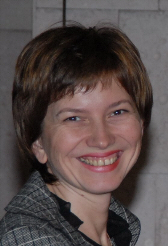A COMPARATIVE ANALYSIS OF RUSSIAN, ENGLISH AND POLISH EUPHEMISMS OF A DELICATE THEME
Аннотация
Ключевые слова
Литература
Enright D.J. Fair of Speech: The Uses of Euphemism. Oxford University Press. -Oxford, 1985.
Никитина И.Н. Эвфемизмы как объект исследования в британской и американской лингвистике//Вопросы филологии. 2008. №2(29). С. 111-114.
Hai-Long J.I. Intercultural study of euphemisms in Chinese and English. Sino-US English Teaching, 2008, vol. 5, no 8 (Serial no 56), pp. 54-58. URL: http://wenku.baidu.com/view/616f1da3284ac850ad0242af.html (accessed April 29, 2014).
Никитина И.Н. Социальные эвфемизмы в современных русском и английском языках//Вестник Волжского университета имени В. Н. Татищева, серия «Гуманитарные науки и образование». -Тольятти: 2011. Вып. 7. С. 54-57.
Никитина И.Н. Проблема перевода эвфемизмов экономического дискурса (на материале английского и русского языков)//Гуманитарные научные исследования. -Ноябрь 2013. № 11 (27). С. 13.
Порохницкая Л.В. Концептуальные метафора и метонимия как основа сопоставления эвфемизмов разных языков (на материале французского, испанского и итальянского языков)//Вестник московского государственного лингвистического университета. 2012. № 643. С. 120-128.
Rabab’ah G., Al-Qarni A. M. Euphemism in Saudi Arabic and British English. Journal of Pragmatics, 2012, vol. 44, pp. 730-743.
Shi Y., Sheng J. The Role of Metonymy in the Formation of Euphemism in Chinese and English. Journal of Language Teaching and Research, 2011, vol. 2, no. 5, pp. 1175-1179.
Rowson H.A. Dictionary of Euphemisms and Other Doubletalk. Castle Books. -New York, 2002. 463 p.
McGlone M., Batchelor, J. Looking Out for Number One: Euphemism and Face. Journal of Communication, 2003, vol. 53, no 2, pp. 251-264.
DOI: https://doi.org/10.12731/wsd-2014-9.2-16
Ссылки
- На текущий момент ссылки отсутствуют.
(c) 2016 В мире научных открытий
ISSN 2658-6649 (print)
ISSN 2658-6657 (online)






